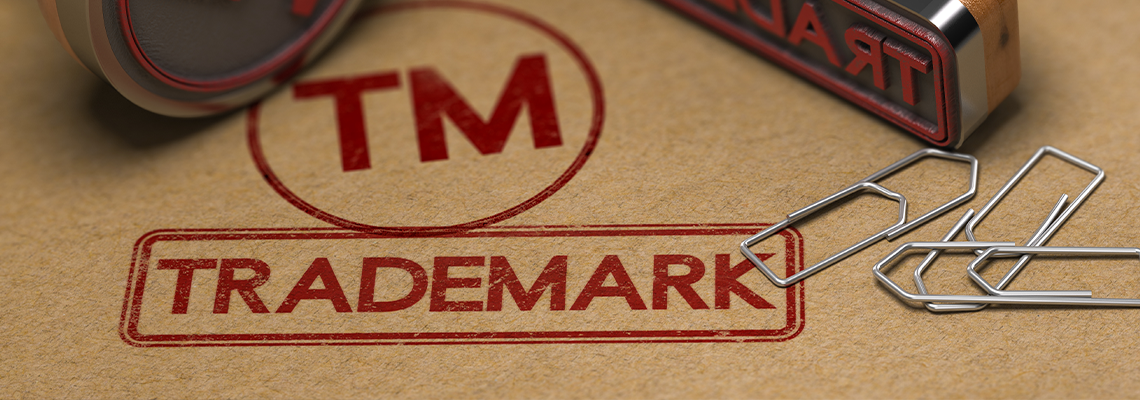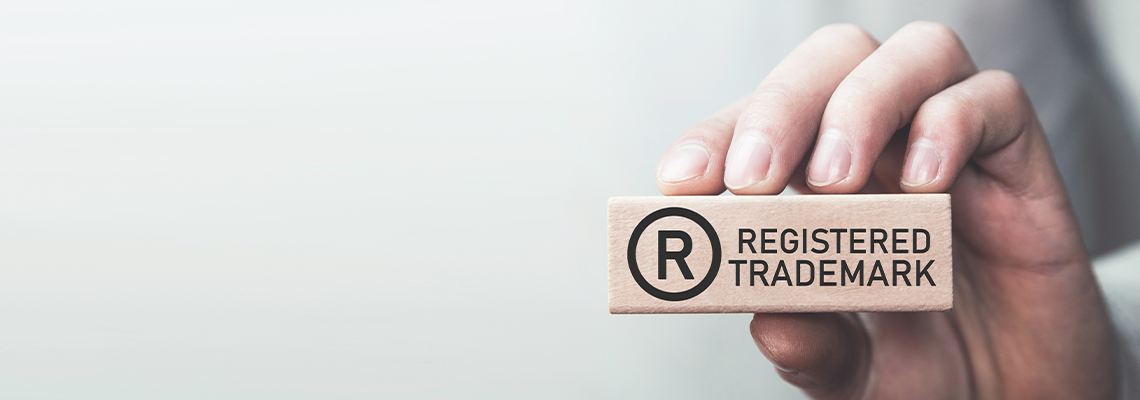
Trademark dilution can be an upsetting situation for business owners. Seeing a brand you've worked hard to build lose its distinctiveness or reputation can feel like a personal attack. Many of our clients come to us frustrated and unsure how to protect their intellectual property.
It's important to know there are ways to address this legally and gather the right evidence to support your claim. When handled properly, the law provides avenues to preserve your brand's value and prevent others from unfairly benefiting from your hard work.
If you're facing challenges related to trademark dilution in Orlando, Florida, or in nearby areas like Orange County, Osceola County, Hillsborough County, or Pinellas County, our knowledgeable trademark law attorney can assist.
At Keough Law, PLLC, we can guide you in identifying the evidence that strengthens your case and help protect your brand from irreparable harm. Reach out to us to explore your options and safeguard your brand.
Trademark Dilution Explained
Trademark dilution happens when another party uses a mark that’s similar to yours in a way that diminishes its uniqueness or reputation. Unlike trademark infringement, which typically involves consumer confusion, dilution can occur even if the public isn't misled. The law recognizes two main types of dilution:
Blurring: Occurs when your mark's distinctiveness is weakened because a similar mark is used on unrelated products or services. Over time, your brand might lose its identity in the marketplace.
Tarnishment: Happens when another product or service associated with your mark lowers its reputation, often involving unsavory or inappropriate contexts.
Recognizing these distinctions helps us determine what evidence is necessary to make a strong claim. For many clients, the first step is to document how their mark is used and the impact of the other party's actions.
Identifying Potential Dilution
Before collecting evidence, it's important to clearly identify the actions that may be causing dilution. We often help clients examine the following factors:
Similar marks: Is the other party using a mark that resembles yours in appearance, sound, or meaning?
Related products or services: Even if the products aren’t identical, is there a connection that could link the brands in consumers’ minds?
Brand recognition: How strong is your mark in the marketplace, and how recognizable is it to the public?
Marketing and advertising overlap: Are the marks used in ways that could lead to association or negative impressions among consumers?
Gathering this information gives us a clearer picture of whether the situation truly constitutes dilution and lays the groundwork for presenting evidence to a court or opposing party.
Types of Evidence to Support a Claim
Successfully proving trademark dilution requires presenting multiple forms of evidence. We work with clients to collect and organize the strongest possible documentation. While each case is unique, common types of evidence include:
Evidence of the mark’s fame: Courts often look at how well-known a mark is.
Examples of the alleged infringing use: Documenting how a similar mark is used in marketing, products, or online can support your claim.
Consumer surveys: Surveys can show that the public associates your mark with your business and can indicate recognition of the dilution.
Advertising and promotional materials: These can illustrate how the infringing mark is presented to consumers.
Expert testimony: Professional testimony can explain the effect on your brand’s distinctiveness.
Each of these forms of evidence contributes to a more compelling case for your claim of dilution.
Evidence of Mark Fame
Fame plays a central role in a dilution claim. A brand with a strong reputation or high recognition in the marketplace is more likely to qualify for protection. We often help clients gather the following types of evidence to show mark fame:
Media coverage: Articles, news stories, and online mentions demonstrating widespread recognition.
Advertising expenditures: Proof of significant marketing efforts that make your brand well-known.
Sales figures: Revenue and market share data that indicate the mark’s prominence.
Awards and recognitions: Industry or consumer awards reflecting the mark’s reputation.
Documenting your mark's fame establishes its value and helps the court understand why dilution would harm your brand. Even if the infringing party’s use is limited, fame can tip the scales in your favor.
Documenting Alleged Infringing Use
Another critical element is showing exactly how the other party’s use impacts your brand. This involves collecting concrete examples:
Product images: Photos of the infringing products or packaging.
Advertisements: Print, online, or social media marketing materials using a similar mark.
Domain names and websites: Screenshots of online presence that include the mark.
Sales and distribution data: Evidence of the infringing mark’s reach or impact on consumer perception.
Properly documenting these examples helps demonstrate the scope and effect of the dilution. Courts often expect detailed, organized evidence that clearly illustrates the harm caused by the infringing use.
Consumer Surveys and Testimonials
Consumer feedback can be invaluable. Surveys and testimonials provide insight into public perception and the potential harm caused by dilution. Working with a trademark law attorney can help guide you in gathering the following:
Brand recognition surveys: These show how many consumers can identify your mark and what associations they make.
Association studies: Research demonstrating that the public connects your mark with the infringing one.
Testimonials from loyal customers: Statements highlighting how the dilution affects perception or purchasing decisions.
While these forms of evidence don’t guarantee success, they strengthen the case by providing objective insights into consumer behavior and brand perception.
Advertising and Promotional Materials
Marketing and advertising documents are essential in showing how your mark is presented in the public eye. We help clients compile materials that illustrate:
Marketing campaigns: Brochures, online ads, social media posts, or email campaigns.
Product packaging and displays: How the mark appears in stores or online.
Sponsorships or partnerships: Events or collaborations that elevate brand visibility.
These materials demonstrate the value and public recognition of the mark, which is central to proving dilution. They also help show the court the contrast between your brand and the infringing use.
Expert Testimony
Professional analysis can provide additional weight to your case. Experts can evaluate how the infringing mark affects your brand and present their findings in a legal context. Typical contributions include:
Marketing and branding experts: Can explain the impact on brand recognition and reputation.
Economic experts: Can calculate the potential financial harm caused by dilution.
Attorneys: Can provide insight into standard practices and industry norms.
Expert testimony reinforces other evidence and helps courts understand the potential long-term effects of dilution on your brand.
Legal Standards for Dilution Claims
Trademark law sets out specific criteria for proving dilution. Knowing these standards helps us focus on what evidence carries the most weight:
Fame of the mark: Demonstrating that your brand is widely recognized.
Similarity of marks: Showing how the infringing mark resembles yours.
Distinctiveness or uniqueness: Proving that your mark is inherently strong or has acquired distinctiveness.
Likelihood of harm: Evidence that the infringing use diminishes your mark’s value or reputation.
Meeting these standards requires careful documentation and a clear presentation of the collected evidence.
Defending Against Dilution Claims
Sometimes, businesses must defend against allegations of dilution. In these cases, we help clients compile evidence to respond effectively:
Showing no likelihood of harm: Demonstrating that the use doesn’t affect the mark’s distinctiveness.
Distinguishing the marks: Highlighting differences in appearance, sound, meaning, or product line.
Proving fair use: Illustrating that the use is descriptive, non-commercial, or otherwise lawful.
Documenting consumer perception: Showing that consumers don’t associate the marks.
Collecting and presenting this evidence can protect a business from costly litigation and preserve its market reputation. Working with a trademark law attorney can assist in this process.
Best Practices for Evidence Collection
When preparing for a dilution claim, there are steps that make evidence collection more effective:
Keep detailed records: Maintain all marketing, advertising, and sales materials.
Document online presence: Take screenshots of websites, social media pages, and digital ads.
Monitor competitors: Regularly check for potential infringing uses.
Use professional surveys: Engage specialists to conduct consumer research.
Organize evidence logically: Categorize materials for easy reference during legal proceedings.
Following these practices increases the credibility of the evidence and helps your trademark law attorney present a stronger case.
Potential Outcomes of Dilution Claims
Once the evidence is compiled, several outcomes are possible depending on the situation:
Injunctions: Courts may order the infringing party to stop using the mark.
Monetary damages: Compensation may be awarded for financial harm.
Settlement agreements: Many cases are resolved before trial through negotiation.
Public acknowledgment: Corrective advertising or public statements may be required to restore brand reputation.
Having strong evidence significantly increases the likelihood of a positive resolution for your brand.
Contact an Experienced Trademark Law Attorney
Trademark dilution claims require careful attention to detail and a thorough understanding of the law. At Keough Law, PLLC, we work closely with clients in Orlando, Florida, and surrounding areas like Orange County, Osceola County, Hillsborough County, and Pinellas County to gather the right evidence and present a compelling case.
If your brand’s identity or reputation is at risk, reach out to us today. Our trademark law attorney can help you evaluate your situation, organize evidence, and take steps to protect what you’ve built. Don’t wait until the damage is done. Contact Keough Law, PLLC to discuss your case and preserve the strength of your brand.



